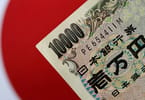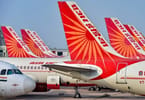From dim sum on hotel menus to Chinese-speaking sales staff, Dubai is rolling out the red carpet for growing numbers of Chinese tourists. Tour operators, hoteliers, and retailers in the emirate are reporting an increase in Chinese visitors since September, when the Chinese government allowed travel agencies to promote the UAE and send tour groups to the Emirates for the first time.
They come at a time when growth from Dubai’s largest tourist market, Europe, is easing because of the recession.
Michelle Chen, the deputy general manager of Hunter International Tourism, one of China’s largest travel agencies, said the number of Chinese visitors had doubled since September. Ms. Chen’s agency, which has an office in Dubai, expected to have 1,000 Chinese visit Dubai in the first two months of this year alone.
“Dubai is advertising a lot in China, and everywhere now, Chinese travel agencies are promoting Dubai, especially for shopping because it is a no-tax area,” she said.
About 100 million Chinese are expected to travel overseas by 2020, the UN World Tourism Organisation (UNWTO) said. China was ranked fifth worldwide for the amount spent on international travel, at more than US$36 billion (Dh132.22bn) in 2008, according to the UNWTO.
“This market has huge potential,” said Arshad Hussain, the director of business development at The Monarch Dubai. Mr. Hussain said China’s strong emergence from the global downturn and rapid economic growth were key to his hotel’s interest in the country.
Analysts and hoteliers have said Dubai last year experienced a decline in visitors from the UK and the rest of Europe, which were its primary source markets, prompting hotels to turn to other markets such as the GCC, India, and China.
Chinese visitors represented 7 percent of The Monarch Dubai’s total number of guests last year, compared with 1 percent in 2008. The luxury hotel launched a menu of Chinese food, recruited Chinese staff. and conducted a number of sales trips to China.
The Dubai Department of Tourism and Commerce Marketing (DTCM) has opened three offices in China: in Shanghai, Beijing, and Guangzhou. “China has been on Dubai tourism industry’s radar as a huge potential source market,” Saleh al Geziry, the director of overseas promotions for the DTCM, said last October. Only about 96,300 of Dubai’s 7.5 million hotel guests in 2008 were Chinese, but the number of flights between China and the UAE has increased substantially to 44 a week, the DTCM says.
“In 2009 and 2010, our efforts will be to reach out to the travel industry and make the destination more attractive to Chinese visitors,” Mr. al Geziry said last year.
Ms. Chen said a third of Dubai’s tourists came purely for shopping and sightseeing, one third were attending various exhibitions, and the remainder were on business trips. Most take bus tours to Mall of the Emirates and Dubai Mall to shop at high-end boutiques and day trips to Abu Dhabi and Fujairah.
Ms. Chen said the UAE was a new frontier for Chinese tourists. “Paris is already over for China,” she said. “A lot of people have already been to Europe. They are now interested in going to Africa and the Middle East.” Ms. Chen said about 10,000 Chinese tourists a month came to Dubai.
Recent headlines about Dubai and the downturn in the property sector have drawn attention to the emirate, and give Chinese tourists the impression that there are bargains to be had, she said. Two major draws for Chinese tourists are the high-quality hotels, such as the Burj Al Arab and The Address, and the vast array of brands with tax-free price tags.
“Shopping malls here are very strong, very beautiful, and have a lot of items,” Ms. Chen said. “If you consider big brands, buying here is really cheaper than in China.” The increasing number of Chinese visitors has prompted the Louis Vuitton boutique at Mall of the Emirates to look at recruiting Chinese staff, said Gerard Bselis, the store manager. “That’s why we’re shifting to even hiring Chinese sales associates,” Mr. Bselis said. “It is a difficult language to learn, so in this case, we’re looking to hire native Chinese.”






















